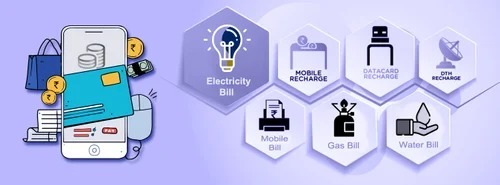#IT Service Providers for Fintech Companies
Explore tagged Tumblr posts
Text
Best Ecommerce Solutions for Startups and Retail Businesses in Vavuniya
In today’s digital world, having a strong online presence is essential for any business looking to grow. Whether you're a startup or a retail store in Vavuniya, the right ecommerce solution can help you reach more customers, increase sales, and streamline operations.
If you're looking for a complete ecommerce solution in Vavuniya, partnering with an expert ecommerce solution provider ensures a hassle-free setup and smooth management of your online store.
Why Choose an Ecommerce Solution for Your Business?
Setting up an online store involves more than just creating a website. A complete ecommerce business solution in Vavuniya includes everything from website development to secure payment gateways and order management systems. Here’s why businesses in Vavuniya are shifting towards ecommerce:
Wider Customer Reach: Sell beyond local markets and attract customers from different regions.
24/7 Availability: Unlike physical stores, an ecommerce website allows customers to shop anytime, increasing sales opportunities.
Cost-Effective Operations: Reduce overhead costs and automate processes like inventory management and customer support.
Seamless Customer Experience: A well-designed online store enhances user experience, boosting customer satisfaction and retention.
Ecommerce Solutions for Retail in Vavuniya
Retail businesses in Vavuniya can benefit from customized ecommerce solutions that cater to their specific needs. Whether you run a clothing store, electronics shop, or grocery business, a reliable ecommerce solution provider company in Vavuniya can help you:
Build an easy-to-use online store.
Integrate secure payment gateways.
Implement inventory and order tracking systems.
Optimize the store for mobile and SEO for better reach.
Choosing the Right Ecommerce Solution Provider in Vavuniya
When selecting an ecommerce solution provider, consider the following factors:
Customization Options: Ensure the solution fits your business needs and brand identity.
Scalability: Choose a provider that allows you to expand as your business grows.
Security Features: Protect customer data with secure payment and cybersecurity measures.
Ongoing Support: A good provider offers technical support and regular updates to keep your store running smoothly.
Take Your Business Online Today!
If you’re looking for the best ecommerce solution for startups in Vavuniya, now is the time to take action. A professional ecommerce solution provider can help you launch and manage a successful online business with ease.
Get started today and transform your retail business with the power of ecommerce!
#Digital Marketing Agencies#Digital Marketing Company#IT Service Providers for Fintech Companies#IT Service Providers for Fintech Development#IT Service Providers for Fintech firms#IT Service Providers for Fintech Technology#IT Service Providers for Fintech Enterprises#IT solution provider company#Ecommerce Solution for Startup#Mobile App Development
0 notes
Text
Secure Fintech Companies in Austria with Automated KYC Solutions
The Austrian financial technology (fintech) sector has experienced significant growth as it brings innovation to payment processing services. Anyone can transfer money from one location to another within seconds. Fintech companies keep innovating their systems to enhance customers’ experience and allow them to make financial transactions smoothly. Along with innovation and digitisation, identity fraud and financial crimes are challenges for fintech companies. KYC solutions plays a massive role in combating these threats in this area.
#kyc solution#kyc software#kyc providers#kyc platform#kyc as a service#kyc service providers#fintech companies
0 notes
Text

https://rrfinco.com/ RRFINCO is one of the Best mobile game development Service Providers, crafting incredible mobile games for IOS and Android. From concept to launch, we manage every step, ensuring top-notch quality.
#rrfinco#rrfinpay#fintech#fintechservice#FintechSolutions#gamedevelopment#gamedeveloper#gamedevelopmentservices#gamedevelopmentcompany#Mobilegameplay#MobileGameDevelopment
#dmt software#loan service#gst services#recharge software#aeps software#api integration#b2b service#api solution#b2c services#account opening#mobile app design bd#mobile app development#accounting#best aeps service provider#bill payment#fintech app development company#app development company#distributor#e government services#education#ecommerce#entrepreneur#fintech service#fintech company#fintech industry#fintech software#mutual fund#gamming software#payment getway#payment getaway
0 notes
Text
0 notes
Text
#video kyc solution providers#video kyc platform#video kyc providers#video kyc services#KYC UK#kyc solution#kyc api#fintech#banks#finance#kyc companies#banking
1 note
·
View note
Text
#software development solution#custom software development companies#mobile app development software#healthcare software development companies#fintech software development company#custom software development services#banking software development companies#medical device software development companies#ecommerce app development company#software development solutions company#enterprise application development services#best lead management software providers
0 notes
Text
Top 10 Fintech Software Development Companies in 2023–24
Fintech software development involves building software and applications to support and improve financial services and transactions. “Fintech” is a portmanteau of “financial technology,” representing the intersection of technology and finance. Fintech software is developed to improve and innovate various aspects of the financial industry, including banking, investment, payments, insurance, lending, and more.
Understanding the Importance of Fintech Software in Today’s Financial Landscape
Fintech software has become increasingly important in today’s financial landscape for several key reasons:
Efficiency and Convenience:
Fintech software simplifies financial processes and makes them more efficient. It allows users to conveniently access, manage, and transfer funds, invest, and carry out other financial transactions through digital platforms and mobile apps.
2. Financial Inclusion:
Fintech has extended access to financial services for underserved and unbanked populations. Digital banking, mobile payment apps, and peer-to-peer lending platforms have made it easier for remote or economically disadvantaged people to access banking and financial services.
3. Cost Savings:
Fintech decreases operational costs for financial institutions. Automated processes and eliminating the need for physical branches can significantly lower costs, which can be passed on to consumers through reduced fees and better interest rates.
4. Data-Driven Decision Making:
Fintech leverages data analytics and artificial intelligence to process and analyze vast amounts of financial data. That allows individuals and institutions to make more informed and data-driven decisions, leading to better risk assessment, fraud prevention, and investment strategies.
5. Lending and Credit Scoring:
Fintech has introduced alternative credit scoring models. Using non-traditional data sources, such as social media and online behavior, lenders can more accurately assess a borrower’s creditworthiness.
6. Investment and Wealth Management:
Robo-advisors and online asset platforms have made investing more accessible and affordable. These platforms use algorithms to offer personalized investment strategies, making wealth management services available to a broader audience.
7. Blockchain and Cryptocurrencies:
Fintech has brought about the rise of cryptocurrencies and blockchain technology. While the adoption of these technologies is still developing, they have the potential to disrupt traditional financial systems by offering faster and more secure transactions.
8. Regulatory Compliance: Fintech software often includes features that assist financial institutions in complying with evolving financial regulations. That is crucial in an environment where regulatory requirements are continually changing.
9. Global Payments and Remittances: Cross-border payments and remittances have been greatly improved by fintech solutions, reducing the time and cost associated with international money transfers.
10. Risk Management: Fintech tools can assist in assessing and mitigating risks associated with various financial activities, from lending to investments.
11. Financial Education: Many fintech apps and platforms provide users with educational resources to help them make advised financial decisions.
12. Customer Personalization: Fintech software often uses customer data to personalize financial services and development offerings, creating a more tailored and engaging customer experience.
What are the Emerging Trends in Fintech Software Development?
Fintech software development is a dynamic and rapidly evolving field. To stay competitive and relevant, fintech companies and developers must closely monitor occurring trends and adapt to them. Here are some of the emerging trends in fintech software development:
Decentralized Finance (DeFi)
Central Bank Digital Currencies (CBDCs)
Blockchain Development
Cryptocurrencies
NFTs (Non-Fungible Tokens)
AI and Machine Learning
Regtech (Regulatory Technology)
Open Banking
Embedded Finance
Cybersecurity and Fraud Prevention
Green Finance and ESG (Environmental, Social, Governance)
Microservices and Cloud-Native Architectures
Voice and Conversational Interfaces
Types of Fintech Software:
1. Mint
2. PayPal
3. Robinhood
4. Betterment
5. TransferWise
Why Invest in Fintech Software development?
Investing in fintech software development can offer multiple benefits and opportunities for individuals, businesses, and investors. Fintech is a rapidly growing industry that shows no signs of slowing down. As more people and businesses adopt digital financial services, there’s a considerable demand for innovative fintech solutions. This growth prospect makes it an attractive sector for investment. Fintech software solutions can often be scaled quickly and globally. This scalability can lead to exponential growth and returns on investment.
Importance of Choosing the Right Software Development Company
In today’s fast-paced and ever-evolving fintech prospect, choosing the right software development company is a crucial decision that can significantly impact the success of your financial technology project. The fintech industry is known for its complicated and highly regulated nature. Partnering with a top software development company with the expertise and experience necessary to navigate these challenges is essential.
Here is the list of Top 10 Fintech Software and App Development Company in 2023–24
LeewayHertz

LeewayHertz uses the latest technologies, including Blockchain, IoT and AI to develop smooth-running, user-friendly and secure financial apps. Their team has built 20+ fintech software applications for the financial industry, including peer-to-peer lending systems, payment gateways and smart finance management systems.

Digital Crew India takes immense pride in their proficiency in the FinTech domain. Their highly skilled team comprises highly trained experts who bring in-depth knowledge of the latest trends and innovations in finance and technology. They are dedicated to helping you create next-generation financial solutions that meet and exceed the evolving needs of their global clients and business. Their Fintech app developers are at the forefront of innovation, ensuring that your app is functional, highly scalable, and easily accessible.

ScienceSoft designs and builds top-flight fintech solutions that help BFSI companies upgrade their unique business operations and leverage new business models while ensuring sensitive data security and regulatory compliance. Their Fintech software development services are aimed to build robust solutions that drive significant improvements in the quality and efficiency of financial services with the help of powerful automation capabilities and advanced techs.

EPAM Startups & SMBs brings together the collective expertise of thousands of IT professionals to help financial startups and fintech rising stars gain a competitive advantage and build long-term success upon the latest technologies available. They cover the entire range of services associated with financial product development and use the best talent available in the market to build software that drives revenue and incentivizes users to forever part with the old ways of transacting online.

Relevant have been developing banking and financial software for enterprise-level companies and innovative startups for ten years, driving cost efficiency and sustainable growth. With their fintech software development services, you can focus on strategy for your business while we handle all stages of fintech software development.

Instinctools has a team that deploys tailored solutions for end users to reevaluate their finances and manage them more effectively by monitoring their credit accounts, getting a better grasp of their spending, tracking their savings, monitoring their credit accounts, and using many other options.

Roonyx Tech is a financial software company. They provide services for the development of fintech apps and fintech software. FinTech Software Development Services creates, designs, and develops software with financial elements for various financial institutions. They help FinTech and financial services companies build FinTech applications using cutting-edge technologies like IoT, AI, and blockchain.

Matellio is a Custom Fintech Solutions provider. They Can Build Accounting Software, Billing and Payment Software, Banking CRM, and Financial Planning Software for their clients. They provide cost-effective fintech software development to upgrade your business with cutting-edge software solutions.

Damco develops innovative FinTech software applications focusing on new-age technologies, compliance, and industry regulations. They support early-stage and established FinTech software companies and cater to evolving market needs.

DeepInspire is a fintech expert. They speak the industry’s language and provide outstanding software solutions for fintech companies by addressing technology and business challenges. They transform bold business ideas into exceptional fintech products by partnering with founders, product owners, and CTOs.
Conclusion:
Choosing the right software and app development company for your fintech project is a decision that should be taken seriously. A successful, compliant, and secure fintech product can be the difference between a costly, risky effort. Due perseverance in your selection process can lead to a partnership that benefits your business for years. So, if you want to invest the time and effort to choose wisely, use the above accurate list of top 10 Fintech software development companies.
#Fintech Software Development#Fintech Software Development Company#Fintech Software Development Services#Fintech Software Development Solution#Fintech Software Development Platform#Fintech Software Development Service Provider#Fintech App Development#Fintech App Development Company
0 notes
Text




API Service Providers
#money transfer api#recharge exchange api#utility bill payments api#bus ticket booking solution api#electricitybillpaymentapi#top fintech api companies#mobile and dth recharge api#pan card api#api service providers
0 notes
Text
Fintech bullies stole your kid’s lunch money

I'm coming to DEFCON! On Aug 9, I'm emceeing the EFF POKER TOURNAMENT (noon at the Horseshoe Poker Room), and appearing on the BRICKED AND ABANDONED panel (5PM, LVCC - L1 - HW1–11–01). On Aug 10, I'm giving a keynote called "DISENSHITTIFY OR DIE! How hackers can seize the means of computation and build a new, good internet that is hardened against our asshole bosses' insatiable horniness for enshittification" (noon, LVCC - L1 - HW1–11–01).

Three companies control the market for school lunch payments. They take as much as 60 cents out of every dollar poor kids' parents put into the system to the tune of $100m/year. They're literally stealing poor kids' lunch money.
In its latest report, the Consumer Finance Protection Bureau describes this scam in eye-watering, blood-boiling detail:
https://files.consumerfinance.gov/f/documents/cfpb_costs-of-electronic-payment-in-k-12-schools-issue-spotlight_2024-07.pdf
The report samples 16.7m K-12 students in 25k schools. It finds that schools are racing to go cashless, with 87% contracting with payment processors to handle cafeteria transactions. Three processors dominate the sector: Myschoolbucks, Schoolcafé, and Linq Connect.
These aren't credit card processors (most students don't have credit cards). Instead, they let kids set up an account, like a prison commissary account, that their families load up with cash. And, as with prison commissary accounts, every time a loved one adds cash to the account, the processor takes a giant whack out of them with junk fees:
https://pluralistic.net/2024/02/14/minnesota-nice/#shitty-technology-adoption-curve
If you're the parent of a kid who is eligible for a reduced-price lunch (that is, if you are poor), then about 60% of the money you put into your kid's account is gobbled up by these payment processors in service charges.
It's expensive to be poor, and this is no exception. If your kid doesn't qualify for the lunch subsidy, you're only paying about 8% in service charges (which is still triple the rate charged by credit card companies for payment processing).
The disparity is down to how these charges are calculated. The payment processors charge a flat fee for every top-up, and poor families can't afford to minimize these fees by making a single payment at the start of the year or semester. Instead, they pay small sums every payday, meaning they pay the fee twice per month (or even more frequently).
Not only is the sector concentrated into three companies, neither school districts nor parents have any meaningful way to shop around. For school districts, payment processing is usually bundled in with other school services, like student data management and HR data handling. For parents, there's no way to choose a different payment processor – you have to go with the one the school district has chosen.
This is all illegal. The USDA – which provides and regulates – the reduced cost lunch program, bans schools from charging fees to receive its meals. Under USDA regs, schools must allow kids to pay cash, or to top up their accounts with cash at the school, without any fees. The USDA has repeatedly (2014, 2017) published these rules.
Despite this, many schools refuse to handle cash, citing safety and security, and even when schools do accept cash or checks, they often fail to advertise this fact.
The USDA also requires schools to publish the fees charged by processors, but most of the districts in the study violate this requirement. Where schools do publish fees, we see a per-transaction charge of up to $3.25 for an ACH transfer that costs $0.26-0.50, or 4.58% for a debit/credit-card transaction that costs 1.5%. On top of this, many payment processors charge a one-time fee to enroll a student in the program and "convenience fees" to transfer funds between siblings' accounts. They also set maximum fees that make it hard to avoid paying multiple charges through the year.
These are classic junk fees. As Matt Stoller puts it: "'Convenience fees' that aren't convenient and 'service fees' without any service." Another way in which these fit the definition of junk fees: they are calculated at the end of the transaction, and not advertised up front.
Like all junk fee companies, school payment processors make it extremely hard to cancel an automatic recurring payment, and have innumerable hurdles to getting a refund, which takes an age to arrive.
Now, there are many agencies that could have compiled this report (the USDA, for one), and it could just as easily have come from an academic or a journalist. But it didn't – it came from the CFPB, and that matters, because the CFPB has the means, motive and opportunity to do something about this.
The CFPB has emerged as a powerhouse of a regulator, doing things that materially and profoundly benefit average Americans. During the lockdowns, they were the ones who took on scumbag landlords who violated the ban on evictions:
https://pluralistic.net/2021/04/20/euthanize-rentier-enablers/#cfpb
They went after "Earned Wage Access" programs where your boss colludes with payday lenders to trap you in debt at 300% APR:
https://pluralistic.net/2023/05/01/usury/#tech-exceptionalism
They are forcing the banks to let you move your account (along with all your payment history, stored payees, automatic payments, etc) with one click – and they're standing up a site that will analyze your account data and tell you which bank will give you the best deal:
https://pluralistic.net/2023/10/21/let-my-dollars-go/#personal-financial-data-rights
They're going after "buy now, pay later" companies that flout borrower protection rules, making a rogues' gallery of repeat corporate criminals, banning fine-print gotcha clauses, and they're doing it all in the wake of a 7-2 Supreme Court decision that affirmed their power to do so:
https://pluralistic.net/2024/06/10/getting-things-done/#deliverism
The CFPB can – and will – do something to protect America's poorest parents from having $100m of their kids' lunch money stolen by three giant fintech companies. But whether they'll continue to do so under a Kamala Harris administration is an open question. While Harris has repeatedly talked up the ways that Biden's CFPB, the DOJ Antitrust Division, and FTC have gone after corporate abuses, some of her largest donors are demanding that her administration fire the heads of these agencies and crush their agenda:
https://prospect.org/power/2024-07-26-corporate-wishcasting-attack-lina-khan/
Tens of millions of dollars have been donated to Harris' campaign and PACs that support her by billionaires like Reid Hoffman, who says that FTC Chair Lina Khan is "waging war on American business":
https://prospect.org/power/2024-07-26-corporate-wishcasting-attack-lina-khan/
Some of the richest Democrat donors told the Financial Times that their donations were contingent on Harris firing Khan and that they'd been assured this would happen:
https://archive.is/k7tUY
This would be a disaster – for America, and for Harris's election prospects – and one hopes that Harris and her advisors know it. Writing in his "How Things Work" newsletter today, Hamilton Nolan makes the case that labor unions should publicly declare that they support the FTC, the CFPB and the DOJ's antitrust efforts:
https://www.hamiltonnolan.com/p/unions-and-antitrust-are-peanut-butter
Don’t want huge companies and their idiot billionaire bosses to run the world? Break them up, and unionize them. It’s the best program we have.
Perhaps you've heard that antitrust is anti-worker. It's true that antitrust law has been used to attack labor organizing, but that has always been in spite of the letter of the law. Indeed, the legislative history of US antitrust law is Congress repeatedly passing law after law explaining that antitrust "aims at dollars, not men":
https://pluralistic.net/2023/04/14/aiming-at-dollars/#not-men
The Democrats need to be more than The Party of Not Trump. To succeed – as a party and as a force for a future for Americans – they have to be the party that defends us – workers, parents, kids and retirees alike – from corporate predation.

Support me this summer on the Clarion Write-A-Thon and help raise money for the Clarion Science Fiction and Fantasy Writers' Workshop!

If you'd like an essay-formatted version of this post to read or share, here's a link to it on pluralistic.net, my surveillance-free, ad-free, tracker-free blog:
https://pluralistic.net/2024/07/26/taanstafl/#stay-hungry

Image: Cryteria (modified) https://commons.wikimedia.org/wiki/File:HAL9000.svg
CC BY 3.0 https://creativecommons.org/licenses/by/3.0/deed.en
#pluralistic#fintech#ed-tech#finance#usury#payment processing#chokepoints#corruption#monopoly#cfpb#consumer finance protection bureau
215 notes
·
View notes
Text

17 Compelling Reasons to Start Learning Mandarin Today!
1. Cultural access: Mandarin opens doors to understanding China’s rich cultural heritage, including literature, philosophy, and art. It’s the key to exploring classical works like Confucian texts and contemporary media without relying on translations.
2. Cognitive benefits: Studies show that learning Mandarin enhances cognitive abilities, such as problem-solving and memory. The complexity of Mandarin characters and tonal distinctions challenges the brain, leading to better mental agility.
3. Future-proofing: As China continues to grow as a global economic powerhouse, being fluent in Mandarin positions you advantageously for future job markets and international business opportunities.
4. Travel convenience: Speaking Mandarin makes traveling in China, Taiwan, and Singapore significantly easier. It helps with navigating public transport, understanding local customs, and accessing services, enhancing your overall travel experience.
5. Business and networking opportunities: With China being home to many of the world’s largest companies, Mandarin can open doors to new business ventures, partnerships, and job opportunities in a wide range of industries.
6. Learn a completely different writing system: Mandarin involves learning thousands of characters, offering a unique cognitive challenge. This skill not only enriches your understanding of the language but also provides insight into Chinese thought processes and cultural nuances.
7. Stand out in the global job market: Fluency in Mandarin is a rare and highly sought-after skill. It can distinguish you from other candidates, making your résumé stand out and potentially leading to higher salary offers and unique career opportunities.
8. Influence of Chinese pop culture: Access China’s booming entertainment industry, including hit movies, music, and television shows. Understanding Mandarin allows you to enjoy these cultural products in their original form, without relying on subtitles or translations.
9. Connect with Chinese heritage: For those with Chinese ancestry or interest, learning Mandarin facilitates a deeper connection with your heritage. It allows you to engage with historical documents and family traditions that are often only accessible in the original language.
10. Enhance travel experiences in Asia: Mandarin proficiency improves your travel experiences across multiple countries in Asia, where Chinese influence is significant. It helps you interact with locals, understand regional dialects, and fully immerse yourself in diverse cultures.
11. Access to advanced technologies: China leads in fields like artificial intelligence and fintech. Understanding Mandarin gives you direct access to cutting-edge research, innovations, and trends emerging from these technology sectors.
12. Build stronger personal relationships: Learning Mandarin allows you to communicate more effectively with Mandarin-speaking friends, colleagues, and partners. It deepens personal connections and shows respect for their language and culture.
13. Tap into Chinese academic resources: China’s academic sector is growing rapidly. Mandarin proficiency enables you to access a wealth of research, academic journals, and educational materials that are increasingly influential on the global stage.
14. Gain insights into global trends: Understanding Mandarin helps you stay informed about global trends and innovations directly from China. This knowledge is valuable for staying ahead in industries like fashion, technology, and social media.
15. Improve cultural sensitivity: Learning Mandarin enhances your understanding of Chinese social norms and etiquette. This cultural insight is crucial for navigating personal and professional interactions with respect and understanding.
16. Develop long-term cognitive benefits: Mandarin’s unique challenges, such as tone recognition and character memorization, promote long-term cognitive development

These were my favorite reasons why I study Mandarin! I’m loving the journey because it connects me deeply with a new culture and opens doors to Chinese technological innovations. Plus, the challenge of learning Mandarin is boosting my cognitive skills and problem-solving abilities. Thanks for reading up to here!

#chnotesbyvi#langblr#study blog#study motivation#study notes#studyblr#writeblr#langblog#language#Chinese#mandarin#learn chinese#learn mandarin#studyspo#study inspiration#study tips#study time
16 notes
·
View notes
Text
















11 January 2024: Crown Prince Hussein, accompanied by Princess Rajwa, attended the launch of the Jordan-Singapore Tech Alliance Forum.
Speaking at the launch, Crown Prince Hussein highlighted the forum’s importance in unifying the two countries’ efforts towards technological excellence.
He stressed Jordan’s keenness to become a rising force on the international tech scene, highlighting the importance of digital transformation and entrepreneurship in nurturing creativity and turning ideas into reality.
The similarities between tech talents in Jordan and Singapore can be a bridge that connects the two countries and enhances cooperation in service of mutual interests, the Crown Prince said at the forum, held by the Ministry of Digital Economy and Entrepreneurship and Jordan’s embassy in Singapore, in cooperation with the Singapore Business Federation and SG Tech. (Source: Petra)
His Royal Highness invited business people, experts, and CEOs to visit Jordan to learn more about the ICT and entrepreneurship sector, which is full of promising Jordanian talents.
Minister of Digital Economy and Entrepreneurship Ahmad Hanandeh said that with more than 8,000 students graduating from IT-related programmes each year, Jordan’s digital economy continues to flourish, noting that Jordanians are making an impact that is attracting businesses from around the world.
He expressed the ministry’s keenness to continue helping Singaporean companies find the perfect home for their business in Jordan, highlighting the Jordan Source programme, which is helping businesses capitalise on Jordan’s exceptional potential as a global IT and business process outsourcing hub.
The Jordan-Singapore Tech Alliance Forum saw the participation of nearly 150 representatives of tech start-ups in Singapore, in addition to six Jordanian start-ups that provide technical support to international companies in sectors like gaming, digital education, and creative industries.
During the forum, key Jordanian tech companies gave briefings on their work, and participants engaged in discussions to attract international firms to Jordan by showcasing the competitiveness of the ICT sector in the Kingdom and success stories of Jordanian start-ups.
The forum also featured a presentation on the Jordan Source programme, launched in 2021 during a ceremony attended attendance of the Crown Prince, to promote Jordan as an international hub for innovation and investment in ICT and communications.
The forum is part of a series of Jordan Source promotional tours to attract investments and build partnerships with international companies seeking to expand into the Middle East through Jordan.
On the sidelines of the forum, a memorandum of understanding between Jordan’s Institute of Banking Studies and the Singapore FinTech Association was signed.
Planning Minister Zeina Toukan, Jordan’s Ambassador to Singapore Samer Naber, and Director of the Office of the Crown Prince Zaid Baqain attended the forum.
27 notes
·
View notes
Text
Top Accounting and Bookkeeping Services in Nungambakkam, Chennai
Hey there, Nungambakkam locals! If you're on the lookout for stellar accounting and bookkeeping services in our vibrant part of Chennai, you're in the right place. Managing your finances can be a hassle, but with the right support, it becomes a breeze. Whether you're a small business owner or someone needing a hand with personal finance, we've got you covered.
In the bustling area of Nungambakkam, you'll find a range of professional services tailored to your accounting and finance needs. From comprehensive bookkeeping to detailed financial reports, the local experts are here to ensure your numbers add up perfectly.
One standout option in the area is the use of cutting-edge accountancy practice management software. This technology streamlines your accounting tasks, making them more efficient and accurate. With tools designed specifically for the local market, you can easily track your finances, manage invoices, and get valuable insights into your financial health.
So, if you’re searching for top-notch accounting and bookkeeping services in Nungambakkam, look no further. The professionals in this area are dedicated to helping you manage your finances with ease, so you can focus on what really matters to you. Check out the full range of services available and find the perfect fit for your needs. For more information, visit Iykons and get started today!
#IT Service Providers for Fintech Companies#IT Service Providers for Fintech Development#IT Service Providers for Fintech firms#IT Service Providers for Fintech Technology#IT Service Providers for Fintech Enterprises#IT solution provider company#Ecommerce Solution for Startup#Mobile App Development#Payroll Company for Very Small Business#Personal Loan Finance Companies#Complete Ecommerce Solution#Human Resource Management Services#Payroll HRMS Software
0 notes
Text
Adam Clark Estes at Vox:
Some people collect coins or stamps. For a time, I collected debit cards. Not stolen ones! Each one of them had my name on them, right below the logo of the latest banking app I’d decided to try out: Venmo, Cash App, Chime, Varo, Current, Acorns. For the better part of a decade, I did all my banking through these apps, enjoying their slick user experience and lack of fees. The problem with every one of them, however, is that they’re not chartered banks. If the company behind the app went bankrupt, the Federal Deposit Insurance Corporation (FDIC) would not necessarily come to my rescue. This disaster scenario was a hypothetical worry when I eventually settled for Chase and its FDIC insurance. For millions of others, it became a reality earlier this year when a company called Synapse collapsed and froze them out of their accounts. Users of Yotta, a popular savings app with a built-in lottery, and other apps that relied on Synapse to help manage their accounts couldn’t access their money for months. Now, as hundreds of thousands of Synapse customers’ dollars remain in limbo, Sens. Elizabeth Warren (D-MA) and Chris Van Hollen (D-MD) are calling for banking reforms, and the FDIC is proposing changes to its rules.
Still, a growing number of people are embracing these financial technology, or fintech, services. More than a third of Gen Z and millennials used a fintech app or a digital bank as their primary checking account, according to a 2023 Cornerstone Advisors study. So some questions are worth asking: Is it a bad idea to use an app like Venmo as your main bank? Are digital banks like Chime trustworthy enough? The answer to both questions is yes. Venmo is not a bank, and using it as your primary checking account comes with some risks. Some fintech companies, like Chime, are just as big as traditional banks and offer some nice perks. Again, because they’re nontraditional, there are risks. “You’re not going to go back to a world where everybody works with a small bank and walks into a branch,” Shamir Karkal, co-founder of Simple, one of the first digital banks. “The future is just going to be more fintech, and I think we all just need to get better at it.”
Neobanks and money transmitters, briefly explained
The term fintech can refer to a lot of things, but when you’re talking about everyday services for everyday people, it typically refers to either neobanks or money transmitters. Chime is a neobank. Venmo is a money transmitter. They’re regulated in different ways, but because most of these companies issue debit cards, many people treat them like checking accounts. Fintech apps are not the same thing as FDIC-insured banks.
Neobanks are fintech companies that offer services like checking accounts in partnership with chartered banks, which are FDIC-insured. Neobanks sometimes enlist intermediaries known as banking-as-a-service, or BaaS, companies, which are not FDIC-insured. Still, you will often see the FDIC logo on neobank websites, just like you see it stuck to the glass doors of many brick-and-mortar banks. That logo instills trust, and thanks to their partnerships, neobanks can claim some FDIC protections. But because they do not have bank charters, these neobanks and BaaS companies are not directly FDIC-insured. Instead, neobank customers can be eligible for something called pass-through deposit insurance coverage.
[...] Money transmitters, also known as money services businesses, are even further removed from the perceived safety of the FDIC. Put bluntly, if you’re keeping all your money in a Venmo or Cash App account, you don’t qualify for FDIC insurance. Money transmitters are not neobanks or banks at all but rather completely different legal entities that are regulated by individual states as well as the Department of the Treasury. There are certain protections provided by these agencies, but FDIC insurance is not one of them. So when an app like Yotta or Chime says on its website that it’s FDIC insured, it’s not a lie, but it’s not necessarily true either. Venmo, to its credit, admits in the fine print of its homepage that its parent company PayPal “is not a bank” and “is not FDIC insured.” To confuse you even more, however, certain PayPal services that enlist a chartered bank partner, like a PayPal Mastercard or savings account, might qualify for FDIC insurance. Again, it depends.
[...] That doesn’t necessarily mean that all neobanks and fintech companies are untrustworthy. In some cases, the sheer size and track record of fintech companies can instill quite a bit of trust. Chime, the largest digital bank with roughly 22 million customers, scored a $25 billion valuation in its latest round of funding and is planning to go public next year. Venmo’s parent company, PayPal, is widely considered safe and trustworthy. And don’t expect Block, the $42 billion company that owns Cash App as well as its own chartered bank, to fail any time soon. The truth is, even if there is some false sense of security, fintech apps offer certain customers features that big banks can’t or won’t. One thing that’s made Chime and many other neobanks so popular, for instance, is that they don’t charge so many fees. That’s a huge boon to young people as well as people without bank accounts. If a fintech app is your only option, then you might not care so much about FDIC insurance.
“If you’re poor in America and you’re banking at Chase or Wells Fargo, you’re going to get overdraft fees, minimum balance fees,” Mikula explained. “So there is a real need that [fintech] companies fulfill as a result of your establishment banks essentially not wanting to bank poor people because it’s difficult to do profitably.” As many as 6 percent of Americans were living without a bank account in 2023, according to Federal Reserve data. That share grows to 23 percent for those making less than $23,000 a year. The unbanked population, which disproportionately comprises Black, Hispanic, and undocumented people, is at a greater risk of falling victim to predatory lending practices, including payday loans. Some fintech companies also offer short-term loans, though they’ve been criticized for being predatory as well.
If you have Venmo, Cash App, Zelle, or any fintech or digital banking app, be aware: don’t use them as your primary checking account.
17 notes
·
View notes
Text
B2B Fintech Service Provider
Making Life Simple, RR Fin Co. bridges the gap between untouched market segments and service providers, offering a wide range of financial and utility services to simplify your life.

#gst services#aeps software#account opening#api integration#b2b service#b2c services#api solution#dmt software#loan service#recharge software#bill payment#b2b lead generation#mobile app design bd#best aeps service provider#aeps#fintech app development company#app development company#mobile app development#distributor#fintech solutions#fintech industry#fintech company#mutual fund#fintech software#software company#it company#credit card#commercial#dmt#gamming software
1 note
·
View note
Text
0 notes